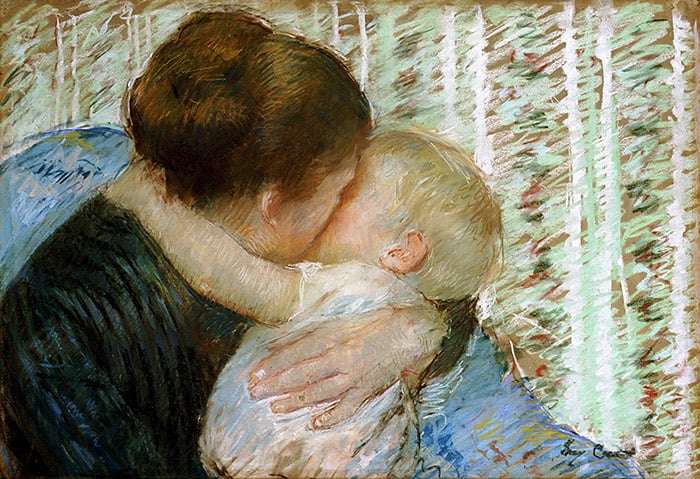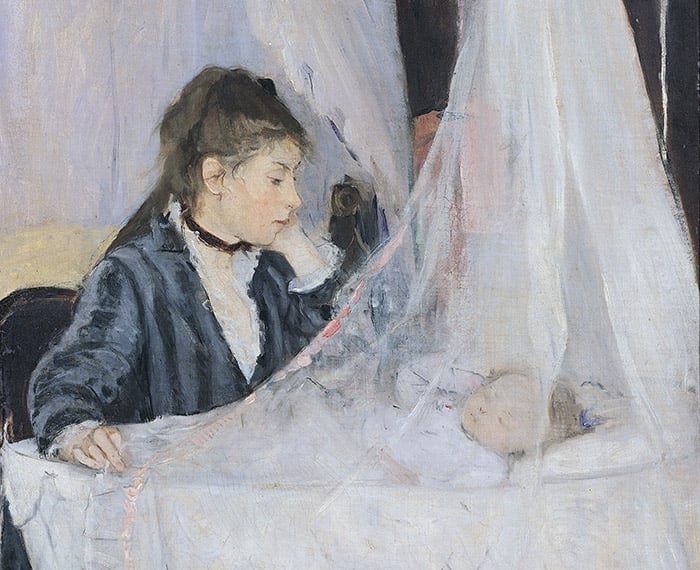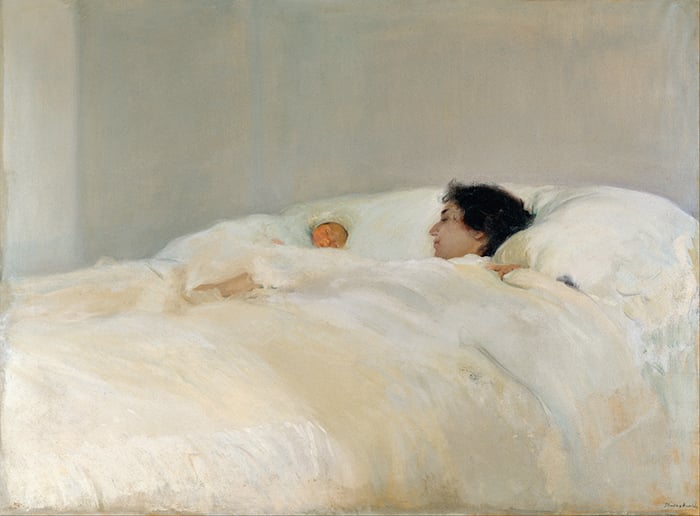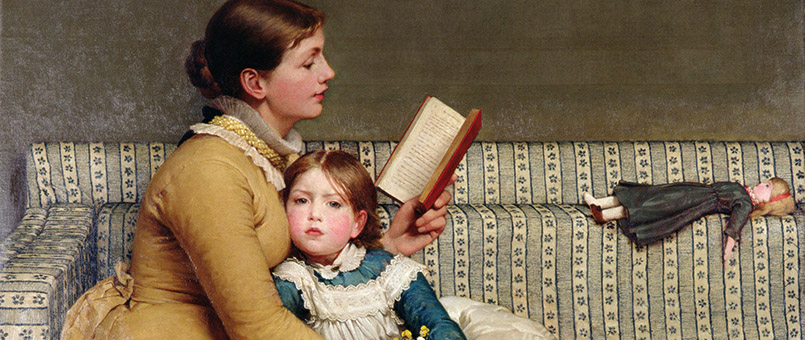
A Celebration of Motherhood
For as long as artists have been wielding their brushes, the relationship between a mother and her child has been a foremost theme.
To coincide with Mother’s Day, here are some of the most celebrated non-religious mother and child images in the history of art and an exploration of the artists who conceived them.
An Intimate Bond: Mary Cassatt (1844-1926)
In the late 19th century, Impressionist painting was the avant-garde style coming out of Paris. Among the notable artists of this movement, there was one American woman, Mary Cassatt, best known for her tender portrayals of mothers with children in everyday domestic settings.
Cassatt never had any children of her own yet produced an inordinate number of works featuring mother and child relationships. Seldom commissioned to paint portraits of the rich and famous, she chose her relatives, friends and clients to act as models, seen performing day-to-day activities such as bathing and dressing their children.
Degas had considerable influence on Cassatt and she became extremely proficient in the use of pastels, eventually creating many of her most important works in this medium. As of 2005, her paintings have sold for as much as $2.87 million.
A Bourgeoisie Life: Berthe Morisot (1841-95)
Morisot was the model and muse of Edouard Manet, appearing in some of his best known works. But Morisot was far more than a model, having established herself as a distinctive and dedicated artist.
Like Cassatt, Morisot painted what she knew; comfortable domestic scenes, yet there are hints towards the restrictive nature of life as a bourgeois wife and mother. In ‘The Cradle’, everything in the painting demonstrates the best in contemporary taste, from the mother’s clothing to the beautifully draped crib. It is often seen as an image of domestic bliss, with a calm, serene atmosphere. However, the abundance of white drapery and the wistful gaze of the mother lend a rather melancholy and claustrophobic air to the painting.
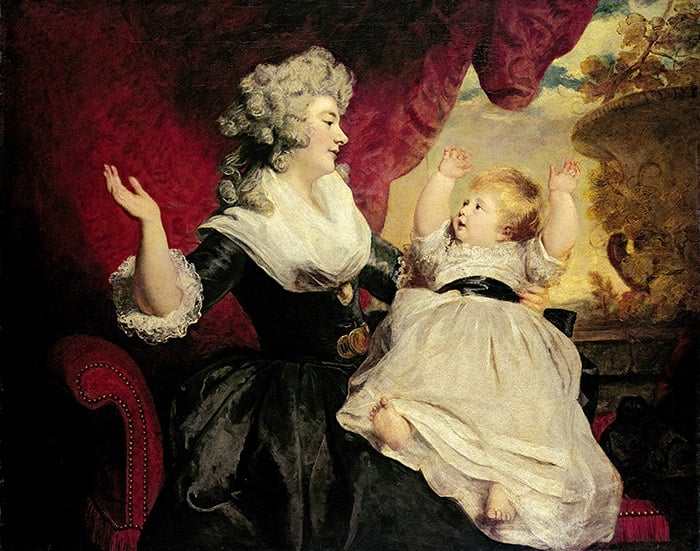
Georgiana, Duchess of Devonshire with her infant daughter Lady Georgiana Cavendish by Sir Joshua Reynolds (1723-92) Chatsworth House © Devonshire Collection
The Society Painter: Sir Joshua Reynolds (1723-92)
Joshua Reynolds is widely regarded as one of the greatest portraitists of the 18th century whose cultivation of a network of aristocratic patrons was an important aspect of his success.
Lady Georgiana Spencer Cavendish married at the age of 17 to England’s most powerful aristocrat, the Duke of Devonshire, with ‘Little G’ born in the summer of 1783. A celebrated beauty, Reynolds celebrates Georgiana in his painting as an affectionate ideal mother.
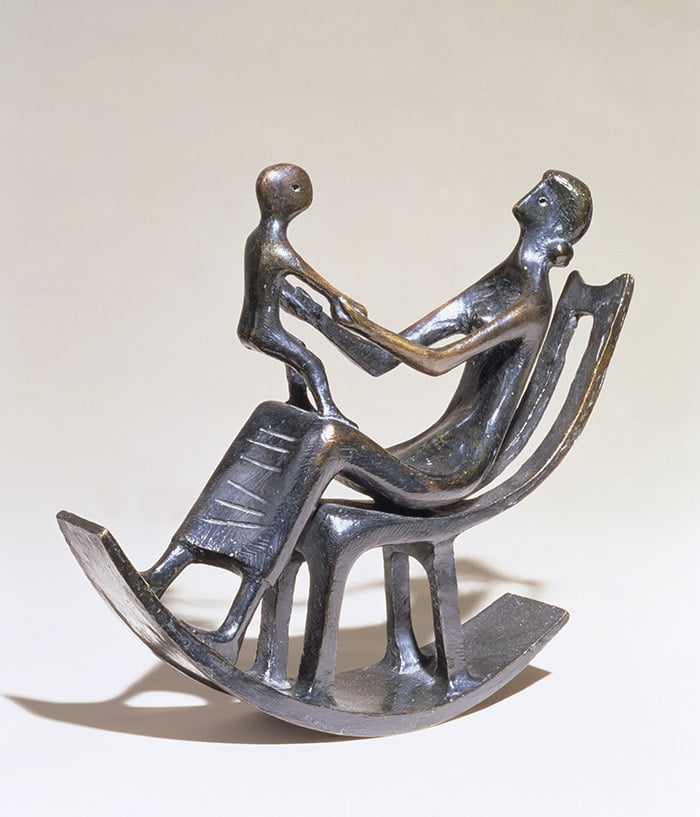
Rocking Chair (bronze) by Henry Moore(1898-1986)Photo © Boltin Picture Library / © The Henry Moore Foundation. DACS 2017
A Central Motif: Henry Moore (1898-1986)
The subject of the Mother and Child was not merely a recurrent motif in the work of Henry Moore but rather a fundamental theme which ran through his entire development as an artist.
“From very early on I have had an obsession with the Mother and Child theme. It has been a universal theme from the beginning of time and some of the earliest sculptures we’ve found from the Neolithic Age are of a mother and child. I discovered when drawing, I could turn every little scribble, blot or smudge into a mother and child. (Later, I did the same with the Reclining Figure theme!) So that I was conditioned, as it were, to see it in everything. I suppose it could be explained as a “Mother” complex.”
A Moment Captured: Joaquín Sorolla (1863-1923)
One of the most moving family portraits by Sorolla was of his wife Clotilde, laying in bed with their new born baby. His wife looks lovingly towards her daughter who is swaddled in a mass of white bedding. Sorolla typically paints skin-kissed flesh of youth and women outdoors but here, the mother and child together are swathed under the sheets of this bed. It is an unsentimental scene of comfort and infinite love.
Find out More
Mother’s Day is on Sunday, 26 March, 2017. Don’t forget to call your mum!
Get in touch with the Bridgeman team on uksales@bridgemanimages.com with enquiries about licensing images and clearing copyright
Save
Save
Save

